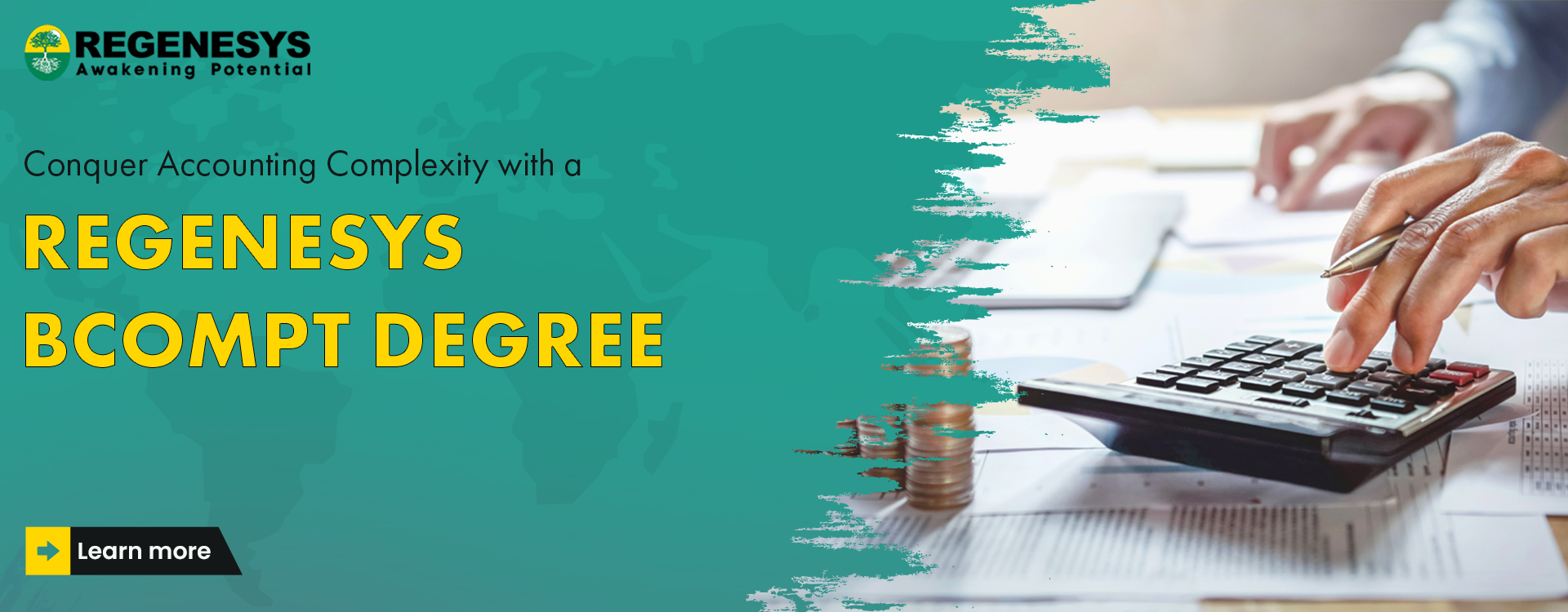When it comes to choosing a career path, many people find themselves wondering about the difficulty of specific domains. One such domain that often raises questions is accounting science.
Is accounting science hard?
In this article, let’s learn more about accounting science and what makes the course challenging. Let’s delve into this article and explore what it takes to excel in accounting.
Table of Contents
What Is Accounting Science?
Accounting science, generally referred to as the “language of business,” is a domain that deals with systematically recording, analysing, and interpreting financial information. It is crucial in providing financial transparency and aiding decision-making processes for businesses and organisations.
To begin with, it’s essential to understand that accounting science is both an art and a science. It combines technical knowledge with analytical skills to interpret financial information and make informed business decisions. While some aspects of accounting science are more straightforward and objective, others require critical thinking and problem-solving abilities.
Is Accounting Science Hard?
Accounting science is a field that often gets a bad rap for being difficult and tedious. Many people associate it with numbers, calculations, and complex financial concepts, leading them to believe that it is a challenging and inaccessible subject.
Many consider accounting science a challenging field due to its intricate rules, principles, and regulations that must be understood and applied accurately. It involves complex calculations, attention to detail, and the ability to analyse financial information. The difficulty level can vary depending on individual aptitude, prior knowledge, and the specific area of accounting being studied. Many people can successfully navigate and excel in accounting science with dedication and consistent effort.
The difficulty of accounting science can vary from person to person. Some find it challenging due to its complex rules and principles, while others may find it more manageable. It often depends on your aptitude for numbers and interest in the subject matter. Like any other domain, practice and dedication can help make it easier over time.
What Makes Accounting Science Hard to Learn?
While some argue that accounting science is a challenging discipline, others may find it a logical and structured field of study. Let’s delve deeper into the complexity of accounting science and explore whether it can be considered challenging.
Here are a few reasons why accounting science is considered hard to learn:
- One of the reasons why accounting science may appear challenging to some is its technical nature. It involves understanding complex financial principles and regulations, such as Generally Accepted Accounting Principles (GAAP) and International Financial Reporting Standards (IFRS). These frameworks deliver procedures for analysing, recording and reporting financial transactions. Mastering these principles requires dedication and a keen eye for detail.
- Another factor contributing to the perceived difficulty of accounting is the constant evolution of the field. As technology advances and the business landscape changes, accountants must adapt to new methodologies and stay updated with the latest software and tools. This continuous learning process can be demanding but also presents opportunities for growth and career advancement.
- Furthermore, the nature of accounting science jobs itself can be challenging. Accountants are responsible for handling sensitive financial data, ensuring accuracy, and detecting discrepancies or fraud. This requires high integrity, ethical conduct, and the ability to handle pressure gracefully and composure.
- Another reason why accounting is often perceived as challenging is its technical nature. Accounting science principles and concepts can be intricate and require a solid understanding of mathematical calculations, formulas, and rules. Applying these principles in real-world scenarios can be complex, as different situations may require different accounting treatments. Moreover, introducing new accounting standards and regulations adds another layer of complexity to the field, requiring accountants to stay updated with the latest changes constantly.
- Apart from the technical aspects, accounting science also demands excellent attention to detail. Accuracy is paramount in this field, as even a minor error in recording or reporting financial information can have significant implications. Accountants must be meticulous in their careers, ensuring that every transaction is recorded correctly and that financial statements are error-free. This attention to detail can be challenging for individuals not naturally inclined towards meticulousness.
- Another factor contributing to the perceived difficulty of accounting science is the amount of information accountants need to process. Accountants deal with vast amounts of financial data, including transactional details, financial statements, and reports. Analysing and interpreting this data requires critical thinking skills and identifying patterns, trends, and anomalies. It can be overwhelming for individuals who need help managing large amounts of information or need help analysing complex data sets.
- Furthermore, the constantly evolving nature of the business world adds a layer of complexity to accounting. Companies are subject to various economic, legal, and environmental factors impacting their financial performance. Accountants must adapt to these changes and understand how they affect financial reporting. This requires a continuous learning mindset and staying updated with industry trends and developments.
However, while accounting science may present its fair share of challenges, it is a manageable hurdle. Anyone can succeed in this field with the right mindset, dedication, and a solid foundation in accounting principles.
How To Get Better at Accounting Science?
While accounting may present its fair share of challenges, it is a manageable hurdle. Anyone can succeed in this domain with the right mindset, dedication, and a solid foundation in accounting principles.
Here are some of the tips to consider to gain success in the accounting science domain:
- To make the learning process smoother, aspiring accountants can pursue formal education. A bachelor of accounting science degree or a related field provides a strong foundation in financial principles and prepares individuals for the profession’s demands.
- Additionally, obtaining professional certifications, such as a higher certificate in accounting science and Certified Public Accountant (CPA) designation, can enhance career prospects and demonstrate a commitment to excellence.
- Gaining practical experience through internships or entry-level positions can contribute to understanding accounting practices. It allows individuals to apply theoretical knowledge to real-world scenarios, fostering a deeper comprehension of the subject matter.
- Lastly, building a solid network of mentors and professionals in this domain can deliver suggestions and guidance along the accounting journey. Connecting with experienced accountants can offer valuable insights, career advice, and opportunities for professional growth.
The Bottom Line
Accounting is a complex science due to its technical nature, attention to detail, information processing requirements, and the ever-changing business landscape. However, with dedication, perseverance, and the proper education, individuals can overcome these challenges and succeed in accounting. It is essential to recognise that while accounting may require effort and continuous learning, it is a valuable discipline that offers rewarding career opportunities and plays a vital role in the functioning of businesses and organisations. So, if you are considering a career in accounting, embrace the challenge, and remember that with the right mindset and preparation, you can conquer this fascinating field.
Enrol now at Regenesys Business Schools Bachelor of Accounting Science (BCOMPT) and develop your professional knowledge, skills, and applied competencies in accounting, auditing, management accounting and taxation. Click here to learn more about the details of the bachelor of accounting science course and more in detail about the accounting science Regenesys modules.
FAQs on Is Accounting Science Hard?
Q1. What is the qualification required for an Entry-level career position in accounting?
Answer: Entry-level career positions often require a bachelor of accounting science degree or a related field.
Q2. Do Accounting Science require technical knowledge?
Answer: No. Accounting Science does require a certain level of technical knowledge; it is not solely focused on numbers and calculations. It also requires analytical and critical thinking skills.
Q3. What are the roles and responsibilities of an Accountant?
Answer: Accountants must interpret financial data, identify trends, and make informed decisions based on the information. These skills can be developed through practice and experience, as well as through formal education and professional development.
Q4. Is Accounting Science a challenging career?
Answer: It is worth mentioning that, like any other field, accounting offers many career paths and specialisations. For example, some individuals may find auditing challenging, while others may enjoy financial planning or forensic accounting. Finding the right niche within the accounting profession can make the learning process more enjoyable and fulfilling.
Q5. What factors contribute to the perception of accounting as a challenging field?
Answer: The complex financial terminology and concepts contribute to the perception of accounting as a challenging field. Terms like depreciation, accruals, and amortisation may seem foreign and confusing to those unfamiliar with the subject. However, with proper guidance and study, these concepts can be broken down into simpler, more understandable terms.







